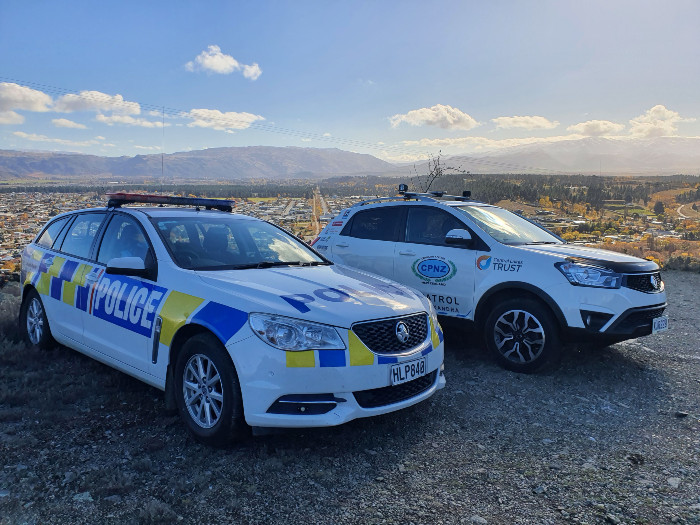Alexandra Rural Community Patrol (ARC Patrol) look for volunteers.
Rowan Schindler
24 May 2021, 5:30 PM
 Do you have what it takes to become a Community Patroller in Central Otago?
Do you have what it takes to become a Community Patroller in Central Otago? The Alexandra Rural Community Patrol, which is affiliated to the National Community Patrol of New Zealand, is on the lookout for the next generation of Community Patrollers to help keep Central Otago safe.
Police Community Patrol Liaison Officer Sergeant Derek Ealson and Alexandra Rural Community (ARC) Patrol Coordinator and Treasurer Wendy Rameka say it's an opportunity for people over the age of 18 years looking to contribute to the community and is a great opportunity to foster relationships and assist police and other agencies in building safer local communities.
ARC Patrol operates in the Central Otago area, with patrols covering from Ranfurly to Roxburgh and we are trained to know what to look out for to act as extra “eyes and ears” for the New Zealand Police.
“We are a volunteer group giving our time to help reduce local crime and make our community safer,” Wendy says.
“We conduct vehicle patrols, mostly at night, as well as attend and support community events. We carry high visibility clothing and safety tools such as radios road cones and lighting to help us do our job.
“We also collate information and statistics, reporting back to Police.”
Community Patrols of New Zealand are regularly out and about in the community and are made up of everyday people with regular day jobs or retired.
No experience in law enforcement is required and the patrols are flexible.
Derek says the community patrol plays the crucial roles of the “eyes and ears of the Police, especially if Police aren’t there”.
“It really is that eyes and ear’s role,” he says. “It allows intelligence-gathering to take place in a less-intrusive or intimidating way and filters right through the community.”
Wendy says a good example of a community patrol is driving around neighbourhoods and keeping an eye out for vulnerable people, such as the elderly.
They also fulfil duties which Police would not regularly need to be involved with, such as checking if gates are locked or if anything is out of the ordinary.
The volunteers don’t get directly involved in any threatening situation which may need the attendance of Police. Their job is to observe, gather intelligence and report to Police.

Community patrollers are tasked with the ‘eyes and ears’ role of the NZ Police, and local units are looking for new volunteers.
A good example of this is a recent patrol which included patrollers reporting dangerous overtaking which forced two oncoming cars off the road.
The patrollers gave a brief description of the vehicle and Police communications informed them to safely follow the vehicle.
It was located on the southern outskirts of Alexandra and the patrollers called in Police. The patrol was ‘tasked’ to follow the vehicle, which took them through Alexandra and Clyde and into the Cromwell Gorge.
Police eventually apprehended the suspect who admitted the offence and Police were able to prosecute.
Wendy and Derek say Community Patrol volunteers receive training and opportunities for growth and personal development.
Derek says it is a great opportunity for people to have experience of policing and a step towards pursuing a career in Police or emergency services.
“It’s a fantastic experience for anyone who may have an interest in Police or emergency services,” Derek says.
“We’d like the patrollers to reflect the community and we would love to have a diverse range of people involved.
“We encourage anyone who may have some spare time to apply and we will find where they can help out, whether they have children at school or just some time during the evenings or on the weekend,” Wendy says.
You need a good character reference and be able to pass a Police check.
There are no minimum hours per week, Wendy says, but a regular patrol would typically cover four to five hours and requires a minimum of two people.
“If you are part of the community and want to contribute, or if you are keen to consider a career in the emergency services it is a great opportunity to be exposed to developing skills, experience and building relationships.”
To find out more go to; Community Patrols of New Zealand, or contact the Central Otago unit at [email protected] or our ARC Patrol Chairperson Lynne Giles on 027 229 8946.
Advertisement



